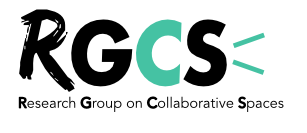Depuis janvier de cette année, je réfléchis à une offre de formation aux nouveaux métiers liés à la conception et la gestion des espaces collaboratifs. Dans les fab labs, les espaces de coworking, les maker spaces, les hacker spaces, les media labs, les labs… de nouveaux métiers apparaissent. De nouvelles compétences également. Un individu ou un petit collectif d’individus doivent : savoir concevoir et faire évoluer les espaces, organiser des évènements, être des médiateurs, être des techniciens IT, faire la maintenance de certaines machines, gérer des formations, organiser des réseaux sociaux entre les membres et entre les anciens de l’espace, communiquer et gérer les visites, administrer et gérer les finances du lieu, etc.
Sur ces sujets, les échanges avec les acteurs académiques, les gestionnaires d’espaces collaboratifs, les collectifs et les acteurs publics ont souvent été étonnants, voire décevants. « Petit marché pas encore assez mature », « acteurs pas assez … Read more
 During the 16th EURAM Conference in Paris (at Paris-Creteil University) we had the opportunity to organize a Development Working Group (DWG) entitled “Fab lab, coworking space, start-up accelerator… New spaces of cooperation?”. The DWG was sponsored by the SIG Entrepreneurship and took place on Friday, June 3rd 2016. We are happy to share to a broader audience what happened there.… Read more
During the 16th EURAM Conference in Paris (at Paris-Creteil University) we had the opportunity to organize a Development Working Group (DWG) entitled “Fab lab, coworking space, start-up accelerator… New spaces of cooperation?”. The DWG was sponsored by the SIG Entrepreneurship and took place on Friday, June 3rd 2016. We are happy to share to a broader audience what happened there.… Read more 